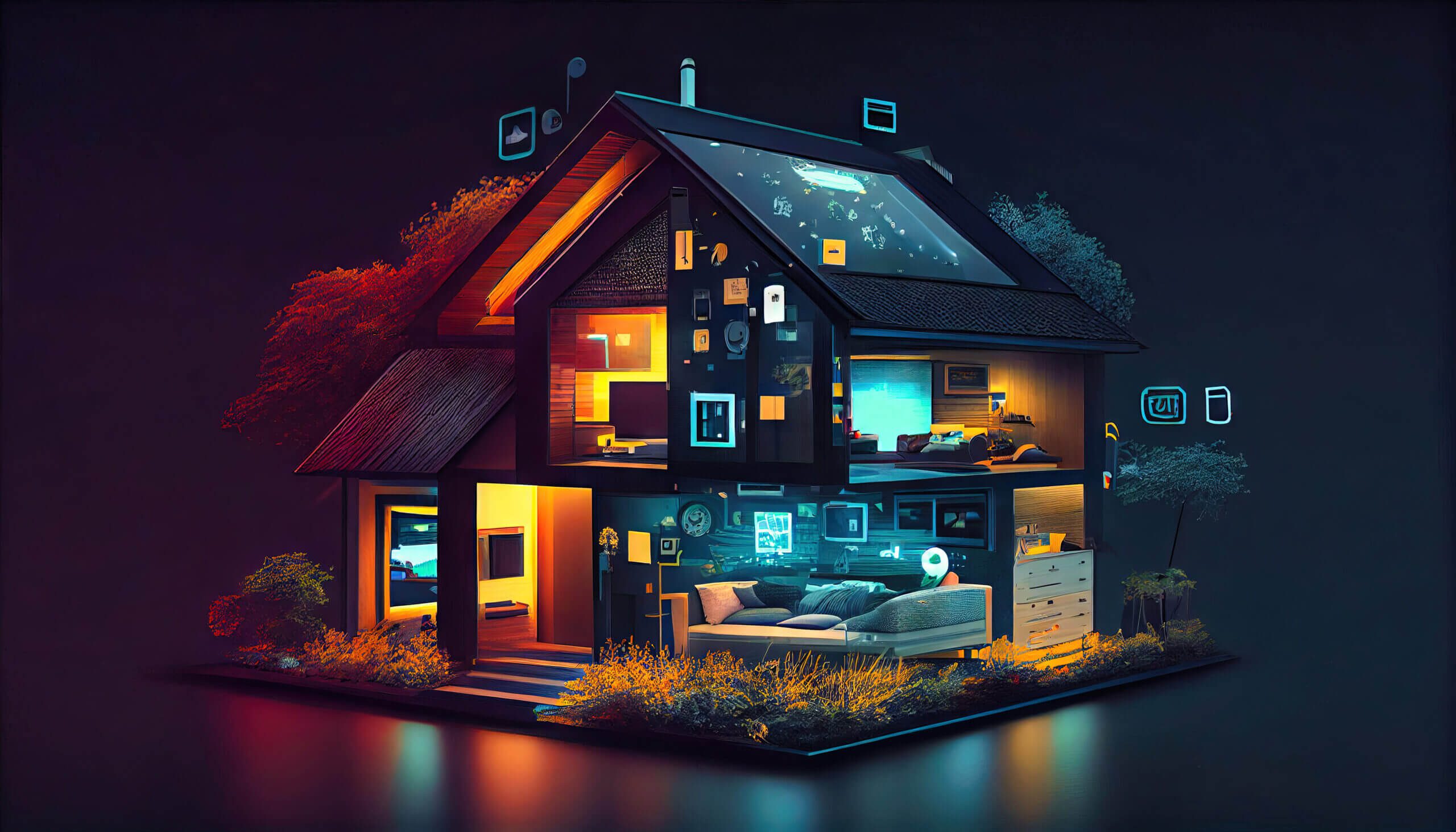Bram Willems · Follow
7 min read · 26–05–2023
With the current development and popularity of AI (artificial intelligence), the upcoming potential for AI to take over tasks in, for example, our homes is bigger than ever [1,2].
The increasing learning ability of AI could play a big role in the near future by learning itself all about our routines and helping us in our everyday life within our homes [2] and even outside our homes [3]. Can the combination of AI and our smart home add another dimension to our future daily lives?
With this article, I would like to give insights into how AI could influence our daily lives in the near future. This blog post is going to explain what a future smart home could look like. Then I will sketch a scenario in the year 2038, where we focus on a household’s (morning) routine with a fully working smart home controlled by an AI program.
After that, I will discuss some advantages of AI but also talk about some things to consider when it comes to the integration of AI. Ultimately, I would like to give my take on the future of AI in our lives.
A SMART HOME IN 2038
First of all, what will a smart home in 2038 look like? Currently, many people already have many smart devices implemented in their homes that they can control through apps; like lights, cameras, curtains, and thermostats [4]. But most of those devices “still” have to be activated or set up by the owner’s actions. Will this be different in the near future? As most of us know, AI is currently able to learn and train itself from information and data available on the internet and from the input of humans [5] or their environments [4].
So, if we imagine that our smart homes in 2038 have a personal AI integrated that could train itself from the information, data, and patterns that it gathers from us and our surroundings through cameras, microphones, and our own preferences. Can a personal AI in our home add another dimension by making decisions for us based on our lifestyle and routines?

AI AND ROUTINES
Let’s, for example, create a scenario of a morning routine in 2038. It’s 7 a.m. on a Tuesday, and the AI wakes us up because it knows our exact schedule for today. It also knows that we had enough sleep last night based on calculations it made for us. It opens our curtains slowly and while we put on our clothes, that the AI recommended based on the weather forecast, it reads to us the most important news that it has selected, summarized, and translated according to our own preferences. While we are brushing our teeth, the AI predicts if we will get sick in a few days based on the saliva that it collects and analyses from our toothbrush. If this would be the case, it would then automatically order the right medicine for us, so we will receive the medicine as quickly as possible. When we made our way to the kitchen to eat breakfast, the AI recommends us the most balanced breakfast based on the data it had collected from the previous meals that we had eaten this week. This is to make sure that we have the right amount of vitamins and nutrition in our bodies to start our day.

All these examples show us that an AI could be intergraded into our lives, for instance, to create a more healthy and efficient morning routine. But we could ask ourselves if we would actually want this. Will a morning routine like this be actually that healthy? Maybe in an objective way, but also in a subjective way?
IN HOW FAR WILL AI MAKE CHOICES IN OUR LIVES?
As I discussed earlier, AI could create another dimension to our lives by taking away and automating decisions and tasks for us. But what conditions or motivations would AI take into account when making a certain choice? What are the advantages and disadvantages?
Advantages of AI making the decisions for us:
+ Efficiency: AI can make fast decisions based on calculations and data. It can analyse complex patterns or conditions that we as humans may miss or not think of.
+ Objectivity: Most, if not all, of AI decisions, are based on (objective) data. So it will dismiss biases or emotions when it makes a choice while humans may be influenced by their biases or emotions.
+ Consistency: An AI will not get tired or bored by making the same kind of decisions all the time. Therefore it will not neglect the given input and will not have a choice to care or not.
Disadvantages of AI making the decisions for us:
– Lack of empathy: Because an AI can only make rational choices, choices that should be made based on context or emotions alone will be excluded. As a result, an AI can be seen as a machine without empathy or emotions.
– Control & Accountability: Delegating decisions and tasks towards an AI also means that you give away a certain kind of control, furthermore, can you blame the AI if it makes mistakes? Who is going to be accountable for the mistakes of the AI in the end?
– Ethics & Privacy: The main reasons that most people are still sceptical about AI currently are ethics and possible privacy risks that it brings with it. Where does all the data, audio, and video go when it is collected by the AI of our smart homes?

My take on AI
All things considered, I personally think AI has a lot of potential in the future to help us with certain tasks or decisions. However, I do think we need to think carefully about how much we want to delegate to an AI. Especially when it comes to our own lives and our living areas. Are the (objective) decisions of an AI actually better than our own (subjective) choices? Where would you draw the line?
Sources:
[1] Almusaed, A.; Yitmen, I.; Almssad, A. Enhancing Smart Home Design with AI Models: A Case Study of Living Spaces Implementation Review. Energies 2023, 16, 2636. https://doi.org/10.3390/en16062636
[2] Kumar, S. and Qadeer, M.A., 2012. Application of AI in home automation. International Journal of Engineering and Technology, 4(6), p.803.
[3] Lin Liao, Donald J. Patterson, Dieter Fox, and Henry Kautz. 2007. Learning and inferring transportation routines. Artificial Intelligence 171, 5 (2007), 311-331. DOI:https://doi.org/10.1016/j.artint.2007.01.006
[4] Xiao Guo, Zhenjiang Shen, Yajing Zhang, and Teng Wu. 2019. Review on the Application of Artificial Intelligence in Smart Homes. Smart Cities 2, 3 (2019), 402-420. DOI:https://doi.org/10.3390/smartcities2030025
[5] Margaret A. Boden. 2016. AI. Oxford University Press.
All images in this blog post are received from stock.adobe.com, illustration(s) are self-made.


